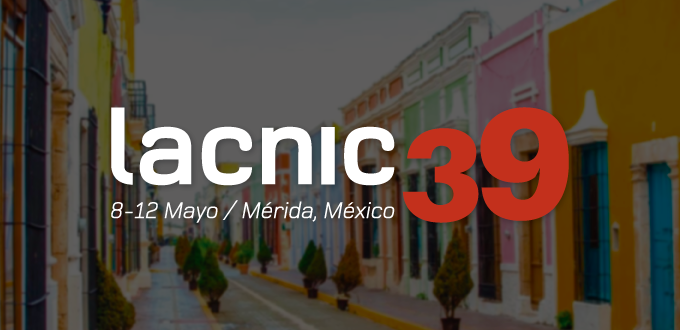Use of RPKI and IRR for network operation at LACNIC 39
18/04/2023

A practical tutorial on the use of RPKI and IRR – scheduled for LACNIC 39 – will provide the necessary information, as well as the tools that network operators need to interconnect in a secure manner and avoid routing incidents.
Guillermo Cicileo, Head of Internet Infrastructure Research and Development at LACNIC, and Erika Vega, Chair of the Routing Group of LACNOG, will give a tutorial on The Use of RPKI and IRR for Network Operation at the event in Merida (Mexico).
“Have you ever experienced that when making a routing configuration to establish a connection with one or more new peers to and from a network, it appears that the traffic starts to be routed through networks that you don’t know? Or simply networks that your peers should not advertise to you according to their policies? “The way we make our announcements and how we receive them from connected networks determines how routers decide to route traffic to its destination, which means that a route leak or misconfiguration can cause packets to be forwarded to the wrong place or allow an attacker or malicious network to intercept or inspect our traffic,” Vega summarized.
Cicileo and Vega will address the fundamentals and technical aspects of best practices related to routing security in traffic exchange and peering during the workshop at LACNIC 39. Afterwards, they will cover practical issues on current Internet routing problems, and how to secure BGP using RPKI and IRR mechanisms. Additionally, they will assist participants in creating ROAs.
Approach. The main topics to be addressed include current routing issues such as route leaks and hijacks, and how to solve them using RPKI and IRR; the creation of ROAs, their use, and validation; general concepts about an IRR (based on LACNIC’s IRR), what it is used for, route and route 6 objects, AS-SET, usage examples to configure routers, and other related topics.
They will also work on best practices for network operators and traffic exchange points, as well as the tools available at LACNIC.
In this regard, Cicileo noted that the best practices for network operators to interconnect both in IXP and private networks will be presented.
You can register to participate in person or remotely by clicking here.